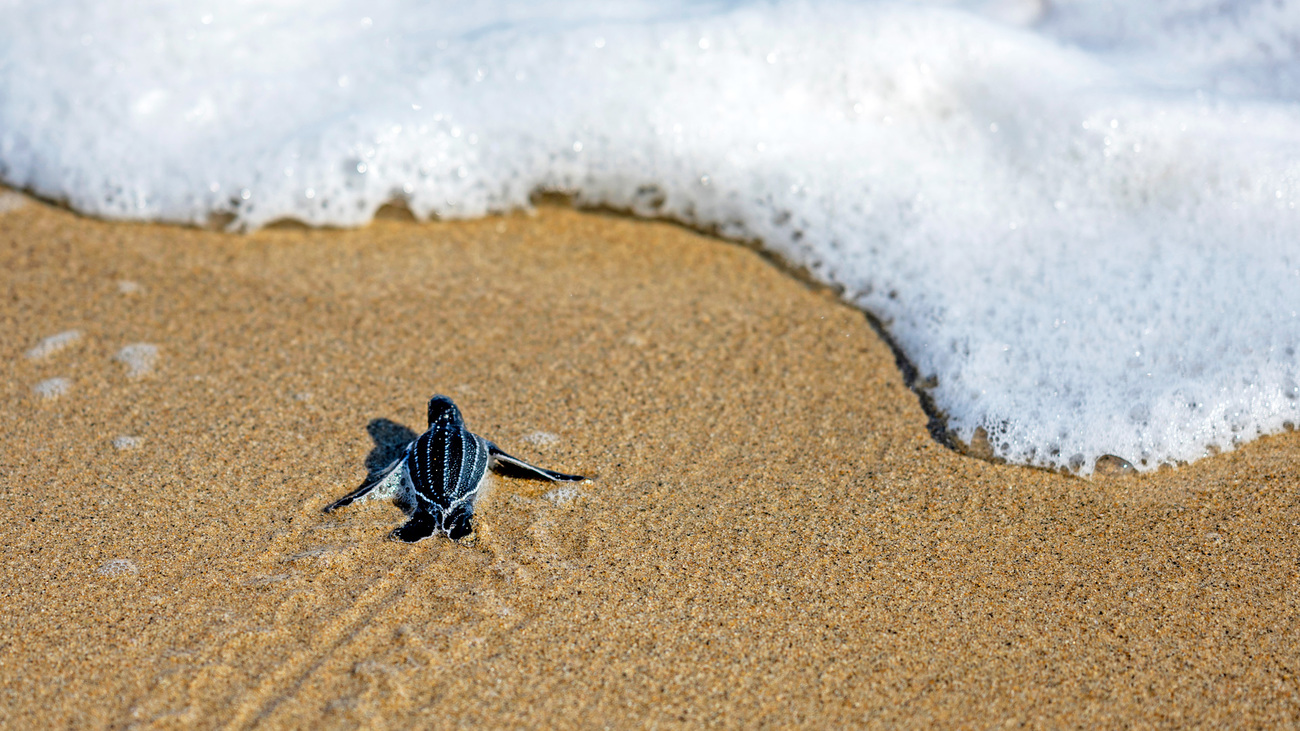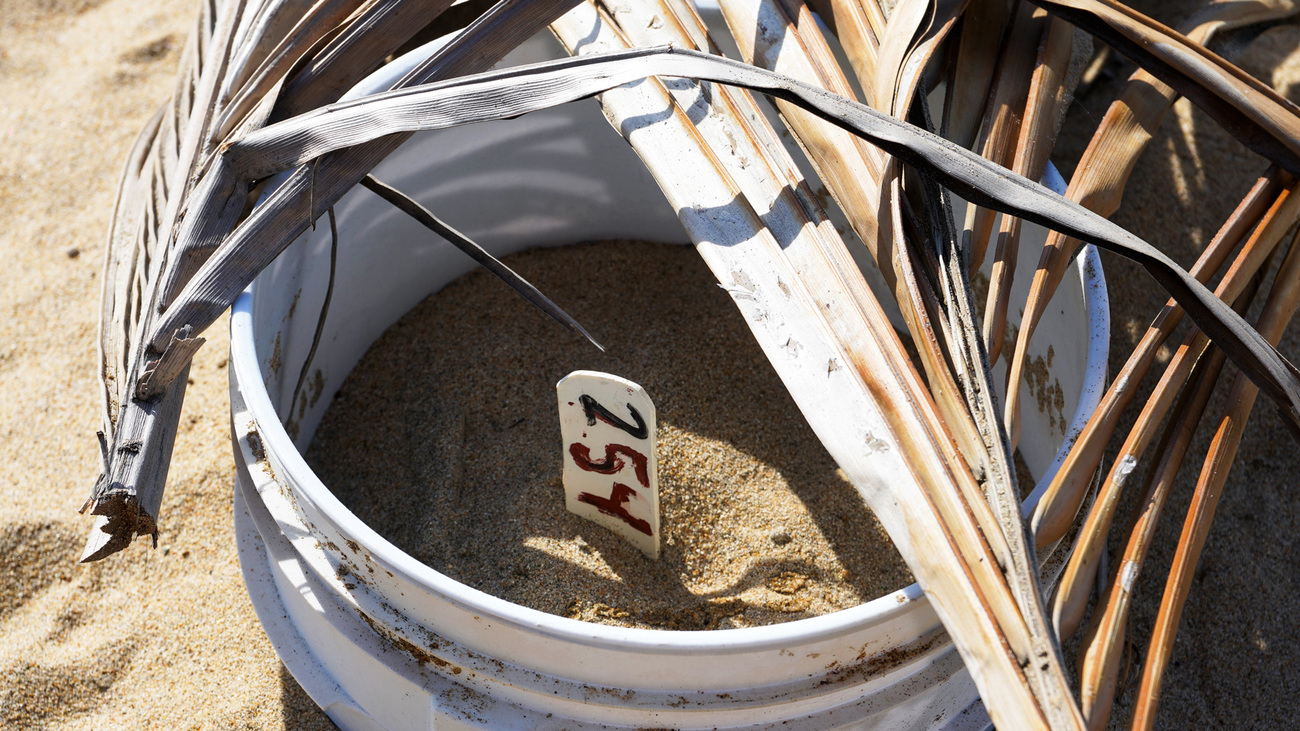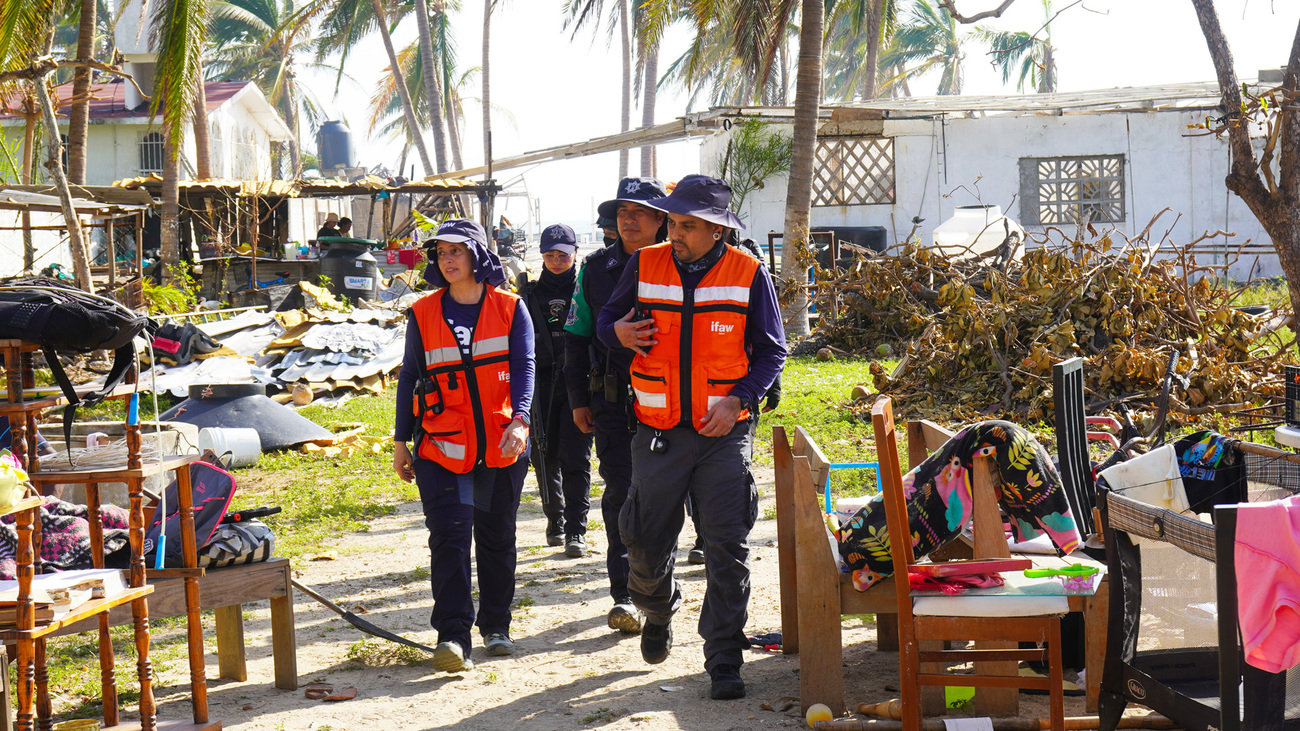Rescuing animals during hurricanes – United States & Caribbean
Hurricanes are increasing in intensity as our climate continues to warmHurricane Otis threatens Mexico’s critically endangered sea turtles
Hurricane Otis threatens Mexico’s critically endangered sea turtles

Hurricane Otis and its aftermath has had severe impacts on leatherback sea turtles native to Mexico’s west coast. As a Category 5 hurricane with sustained wind speeds of 165 miles per hour (265 kilometres per hour), it was the strongest storm to hit the region in recorded history. The population of leatherback turtles that nest in the state of Guerrero and the surrounding region is considered critically endangered, and their nesting season has just begun.
At least 53 leatherback turtle nesting sites stood in the hurricane’s path. Initial reports received by IFAW indicate that the storm severely affected at least 11 of these sites.
The surrounding communities, filled with many passionate protectors of wildlife who are heavily involved in monitoring leatherbacks, witnessed not only the loss and damage of their own homes but also the devastating toll of the storm on the animals they’ve dedicated their lives to safeguard. One individual is Don Roberto Lugardo Quevedo, who has managed the most critical leatherback nesting site in southern Mexico for 30 years. Last year, Roberto saved 1,437 nests with 103,000 sea turtle hatchlings, including 85 leatherback nests with 4,250 hatchlings—which accounts for 19% of the entire Guerrero population of leatherbacks.

The winds from Otis covered many of the turtles’ nests in sand, which may prevent the eggs from hatching. Roberto plans to remove as much sand as possible to give them a chance. He and others who manage and protect sea turtle nesting sites have experienced extreme damage to their property; as they devote time and energy to saving the critically endangered turtles, they also have families, pets, and farm animals to keep safe.
The world’s largest turtles face major threats
Not only can hurricanes damage turtle nesting sites through powerful winds and rains, but they can also lead to a spike in poaching by humans and predation by dogs driven by hunger, as the storms make food and resources less available. Poaching and predation by free roaming dogs are already the two most prominent threats to leatherback turtles in this region, and the aftermath of the hurricane will only heighten the danger.
As part of their reproductive process, female leatherback turtles journey back to the same beach where they were born. They can lay between five and seven nests per season, each of which holds approximately 100 eggs. However, for every 1,000 hatchlings born, it’s estimated that only one leatherback turtle will make it to adulthood.
The largest living turtle species on Earth, leatherbacks have been a part of the ocean’s rich biodiversity for about 100 million years, evolving during the time of the dinosaurs. But sadly, their future survival as a species is uncertain, as human activity and the effects of climate change continue to degrade their habitats. These turtles are frequent victims of bycatch and vessel strikes in addition to egg harvesting.
Sea turtles are also seriously impacted by plastic pollution. Leatherbacks often ingest plastic bags—floating underwater, they look similar to jellyfish, which is their primary food source. Reducing plastic consumption is one way to help protect sea turtles.
Climate change presents a looming threat to leatherback sea turtles as they face rising water temperatures, which can alter the sand conditions needed for successful nesting and incubation. In addition, climate change increases the unpredictability of weather patterns, which can lead to more frequent severe storms like Hurricane Otis.
How IFAW is helping
On 30 October, IFAW deployed a disaster response team to Acapulco to coordinate rescue and relief planning, provide veterinary care and animal food, and help develop a recovery plan.

At the request of state authorities, the team visited numerous leatherback turtle nesting sites to evaluate the situation.
On 4 November, the team met with state authorities, shared their assessment report, and made recommendations for an Animal Branch camp in Acapulco. The state will help set up this base camp, which will enable our team to help rebuild two turtle camps. IFAW will also provide emergency veterinary care and animal food to hundreds of pets and farm animals in the surrounding communities affected by the hurricane.
Related content
Our work can’t get done without you. Please give what you can to help animals thrive.